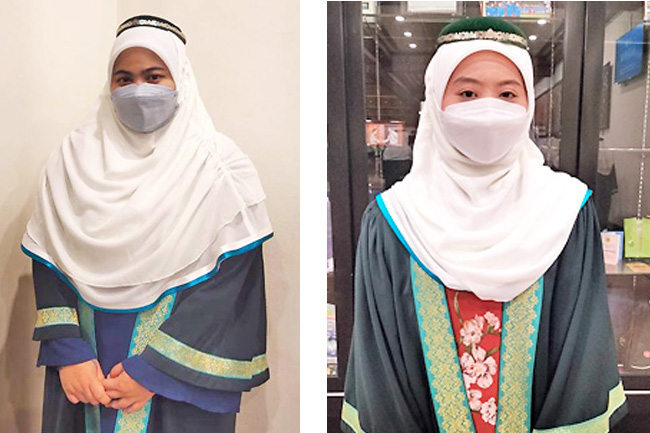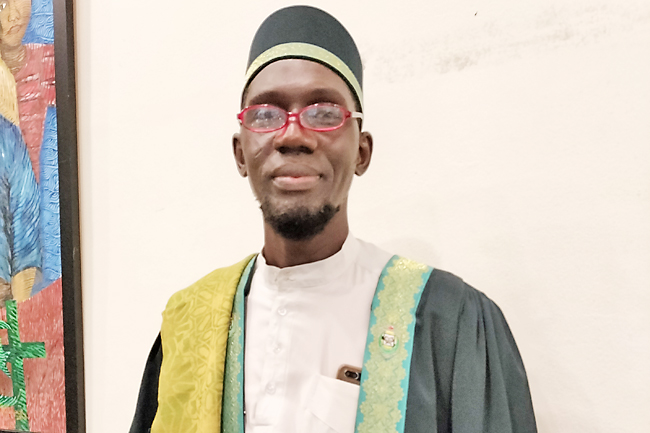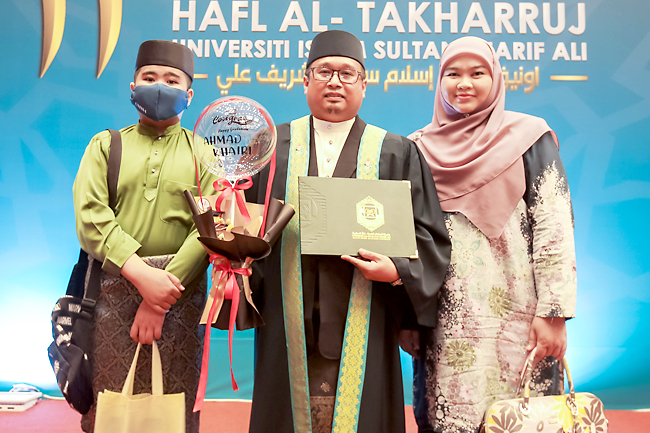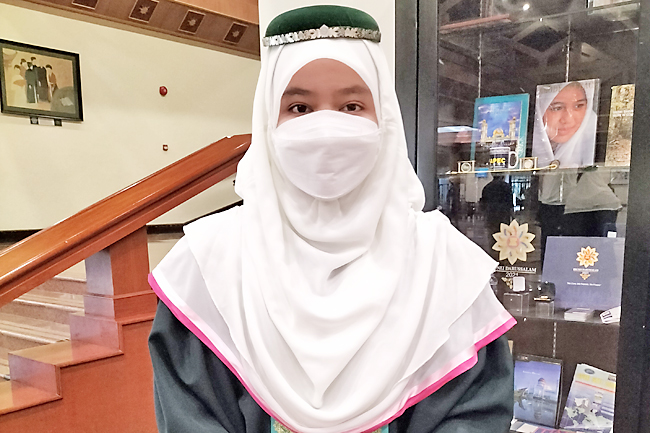Rokiah Mahmud
Earning a graduation certificate is one of the key measures for a student’s success as well as a milestone in their lives after facing sweet and bitter encounters in their journey towards the finish line.
For some, the journey might not be a smooth one. Some might stumble, while others may need to burn the midnight oil to meet all the deadlines.
The 12th Universiti Islam Sultan Sharif Ali (UNISSA) Hafl At-Takaruj saw the smile of 431 students as they receive their certificates.
With a Bachelor’s Degree in Halal Science from the Halalan Thayyiban Research Centre, Azera Nasoha binti Azman shared that during the four years of studies, she learnt many issues pertaining to halal and haram that have yet to be addressed or being fully understood.
“When I decided on the programme, many asked why I chose to pursue the path.
“Many would say that we have been taught about halal and haram since our early education anyway. But the programme consists of that go in depth about halal and haram issues,” she said.





“It is not just simply ‘this is halal’ or ‘that is haram’. The process in producing, preparing, determining and ensuring it is halal or haram is very important. It is not just related to food and drinks, it covers everything in our scope of life including halal fashion, cosmetics, beauty and health products, supplements, vaccines and tourism.
“Many may think that what is being offered in the local market is halal. However, all Muslims should have the knowledge that not all items or products are halal; some can be dubious.
“Then again, is up to the individual what is halal or haram. Therefore, the awareness of halal and haram issues need to be addressed, and more on trying to help people understand these issues in a positive way from the Islamic perspective,” she said.
For the final year, she chose to focus on suicidiology from the Syariah perspective with an emphasis in halal lifestyle.
For the project, she explained why the act of committing suicide is prohibited in Islam and labelled as haram by referencing Al-Quran and Al-Hadith.
She also interviewed government counsellors and Darussyifa practitioners as well as other parties and individuals pertaining to her research.
Looking back on her journeystudying online during her third and fourth year of studies stood out due to the COVID pandemic.
“During the time, our lecturers were very concerned about our studies. They wanted to make sure that all of us understood the materials, able to gather all the information needed and complete assignments given,” she said.
Fellow graduate in halal science, Siti Noratiqah binti Aminuddin added that they were the first batch to graduate from the Halalan Thayyiban Research Centre as it was inaugurated four years ago.
According to Siti Noratiqah, after completing their four-year studies, they were not only exposed to halal and haram, they also participated in workshops on proper slaughtering and visit slaughterhouses.
“The programme serves as a medium for the public to learn in detail on halal and haram issues as it is closely related to our Malay Islamic Monarchy philosophy,” she said.
Meanwhile, Gambian student Adama Conateh expressed his gratitude to Allah the Almighty for granting success in his journey in pursuing a Masters Degree in Islamic Banking and Finance.
“The programme took two years to complete. Throughout my stay in the Sultanate, I have learnt a lot, not only the study environment at UNISSA, but also learning about the culture and the way of life of the locals,” he said.
In asking why he chose Brunei Darussalam to pursue his Master’s, Conateh said what UNISSA offers is very interesting in terms of doing research, assignments and projects.
“My journey in the country has provided me with a lot of experience. It was a bit difficult to cope at first but as time went by, I managed to adapt and complete my research,” he said.
Adama also shared that he also had the opportunity to mingle with senior citizens.
He explained that he enjoyed talking with them as the elderly have a lot of knowledge and experience to learn from. He also shared that he plans on pursuing a PhD at UNISSA.
Nurhikmah Mama from Pattani, Thailand, who graduated with a Bachelor of Syariah (Fiqh & Usul) believes there were many reasons for pursuing her studies in the Sultanate.
In terms of academic learning, she said UNISSA is renowned as one of the top Islamic universities.
“Our professors were very kind. They have provided guidance during our our assignments and research,” she said.
Meanwhile, Ahmad Khairi bin Haji Hassan, as one of the first graduates of the National Diploma in Dai’e and Leadership, said that the course is a two-year part-time programme.
He believes it is vital for all Dai’e to have a broad knowledge and be part of the current and relevant methods in delivering their talks so that they will not go beyond the teachings of Ahli Sunnah Wal Jama’ah and Mazhab Shafi’e.






